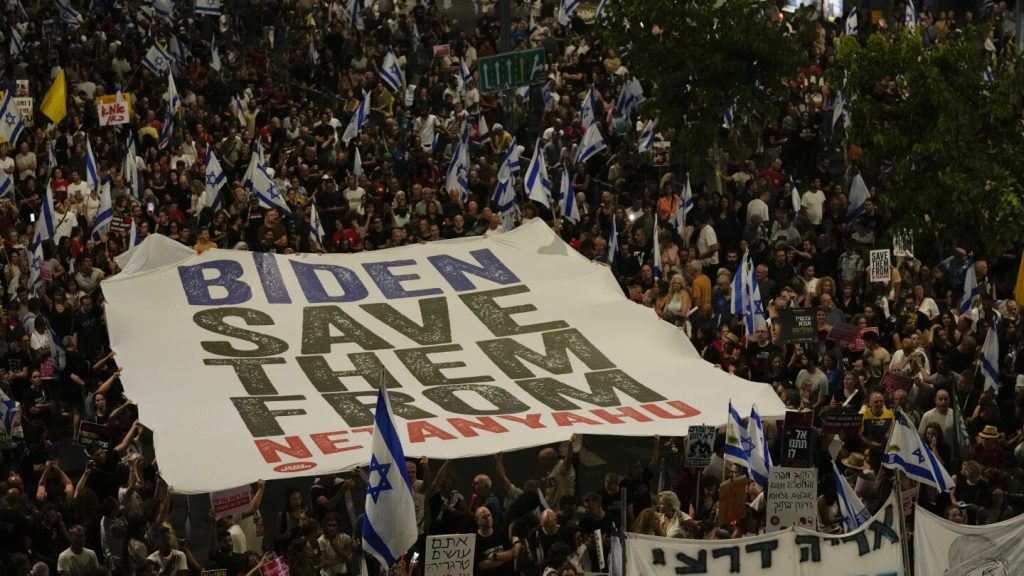Israeli Prime Minister Benjamin Netanyahu is facing pressure from both his own citizens and far-right allies after U.S. President Joe Biden proposed an agreement to end the fighting in Gaza. While many Israelis are urging Netanyahu to accept the deal, far-right allies have threatened to collapse his government if he does. A large demonstration in Israel, led by families of hostages held by Hamas, called for immediate action from the government. Mediators from the U.S., Egypt, and Qatar are pushing both Israel and Hamas to consider the proposed deal as a road map to a permanent cease-fire.
Finance Minister Bezalel Smotrich and Minister of National Security Itamar Ben Gvir have stated that they would break up the government if Netanyahu accepts the deal, potentially leading to new elections. Netanyahu has insisted that Israel’s conditions for ending the war remain the same, including the destruction of Hamas’ military and governing capabilities, the freeing of all hostages, and ensuring that Gaza no longer poses a threat to Israel. The proposed agreement also includes immediate relief for hostages and Gaza residents, according to mediators.
Biden has asserted that Hamas militants are no longer capable of carrying out large-scale attacks on Israel and has urged both parties to reach an agreement to release remaining hostages and bodies in exchange for an extended cease-fire. Talks halted last month in an effort to avoid a full-scale Israeli invasion of Rafah, where Israeli troops are currently operating to uproot remaining Hamas battalions. The United Nations has described living conditions in Rafah as “horrific and apocalyptic” due to the ongoing conflict.
The proposed agreement outlined by Biden includes different phases, with the first phase lasting six weeks and involving a full cease-fire, withdrawal of Israeli forces from densely populated areas, and the release of certain hostages in exchange for Palestinian prisoners. The subsequent phases would focus on releasing all remaining hostages and beginning reconstruction in Gaza, which has suffered extensive damage from the war. While Hamas has viewed the proposal positively, Israel maintains the right to resume military operations if Hamas fails to fulfill its commitments.
The readiness to stop the war for an undefined period is a significant development in the proposed agreement, allowing Israel to renew military operations if necessary. Analysts believe that this approach could diminish Hamas’ ability to govern over time. The international community, including the United States and Egypt, are involved in discussions about aid entry points like the Rafah crossing to address humanitarian concerns in Gaza. The conflict has resulted in numerous casualties, with civilians bearing the brunt of the violence.
As pressure mounts on Netanyahu to make a decision on the proposed agreement, the situation remains fluid. Families of hostages are urging swift action to secure the release of their loved ones, while political allies and international mediators are working to find a resolution that appeases all parties involved. The outcome of these negotiations will have significant implications for the future of Gaza and Israel’s security landscape.


